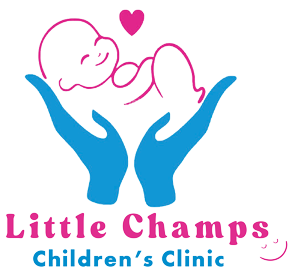Pediatricians play a crucial role in safeguarding the health and well-being of children. These healthcare professionals specialize in the medical care of infants, children, and adolescents. In this article, we will delve into the definition of a pediatrician, their vital roles, and their responsibilities in promoting children's health.

Meet Dr. Anusha Chalasani
MD Pediatrics
Fellowship in Neonatology
She is a compassionate and highly skilled pediatrician dedicated to providing exceptional care for children of all ages. With 10 years of experience in pediatrics, she specializes in ensuring the overall well-being of children by offering preventive care, accurate diagnoses, and effective treatments tailored to each child's unique needs. She is known for her warm approach, ensuring children and their families feel comfortable and supported. She is committed to fostering a strong doctor-patient relationship and emphasizes education and guidance for parents to nurture their child’s growth and development.
Philosophy of care:
Dr. Anusha believes in the importance of a holistic approach to child healthcare, focusing on preventive medicine, early intervention, and empowering families with knowledge.
Roles of a pediatrician:
- Primary care provider: serves as the first point of contact for all health-related concerns of infants, children, and adolescents.
- Advocate for children’s health: promote health awareness and guide parents and communities in ensuring the well-being of children.
- Child development specialist: monitor physical, mental, and emotional development milestones and address any delays or challenges.
- Preventive healthcare expert: administers vaccinations, conducts regular check-ups, and provides advice on nutrition, hygiene, and lifestyle habits.
Responsibilities of children's doctor:
- Conduct medical examinations: perform routine health assessments to monitor growth, detect illnesses, and address health concerns.
- Diagnose and treat illnesses: identify and manage acute and chronic health issues such as infections, allergies, asthma, and other pediatric conditions.
- Provide emergency care: address urgent health problems like injuries, high fevers, or seizures promptly.
- Guide parents and caregivers: offer advice on parenting practices, diet, sleep patterns, and safety measures to ensure optimal child development.
- Prescribe medications and therapies: recommend appropriate treatment plans, including medications, therapies, or referrals to specialists if needed.
- Monitor immunization schedules: ensure children are up-to-date with vaccinations as per national and international guidelines.
- Handle developmental and behavioral issues: address problems such as ADHD, autism spectrum disorders, and learning disabilities.
